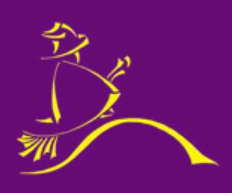Design and Technology
Design Technology Subject Policy
Intent
At Pendle Primary School, Design Technology (DT) is taught as part of cross-curricular topic themes to provide meaningful and engaging learning experiences. Children study three DT units per year, which may be delivered through weekly lessons or immersive blocks, depending on the nature of the project.
Our curriculum is designed to:
- Develop children's creativity, problem-solving, and practical skills.
- Ensure progression in key areas: Mechanisms, Structures, Food, Textiles, Electrical Systems, and Mechanical Systems.
- Promote understanding of the iterative design process, encouraging children to evaluate and refine their work continuously.
- Embed principles of healthy eating and nutrition, with every child completing a food-based unit annually.
- Introduce children to real-world design through the study of successful designers and existing products.
- Foster curiosity and exploration from Reception to year 6.
We aim to prepare pupils with essential life skills, including the ability to cook, design, and think critically about the world around them.
Implementation
Curriculum Delivery: DT is taught through three units per year, either weekly or in blocks, to suit the theme and depth of the project.
Lesson Structure:
IEAs – Investigate designers and products
IEAs – Disassemble products (where possible) and evaluate
FTs – Practice skills specific for the project (i.e. structures)
DMEA – Design a product with the end user in mind
DMEA – Make (emphasis on the iterative process, with ongoing reflection and improvement).
DMEA – Evaluation
Food Technology: Each year group completes a food unit focused on cooking skills and healthy eating.
Early Years: Reception children engage in DT through exploratory play and weekly baking sessions with Mrs Hailwood.
Enrichment:
Annual STEM Week with DT-themed competitions.
Participation in the Catalyst Competition in partnership with Johnson Matthey.
Progression: Skills and knowledge are mapped to ensure progression across year groups.
Impact
Pupil Outcomes:
Children demonstrate increasing competence in designing, making, and evaluating products.
They understand the importance of nutrition and develop confidence in cooking.
Skill Development:
Pupils acquire transferable skills such as critical thinking, collaboration, and resilience.
Assessment:
Teachers assess through observation, pupil voice, and evaluation of final products.
Engagement:
High levels of pupil engagement are evident during DT projects and competitions.
Community Links:
Strong partnerships with local businesses enhance real-world relevance and inspire future careers in STEM.
